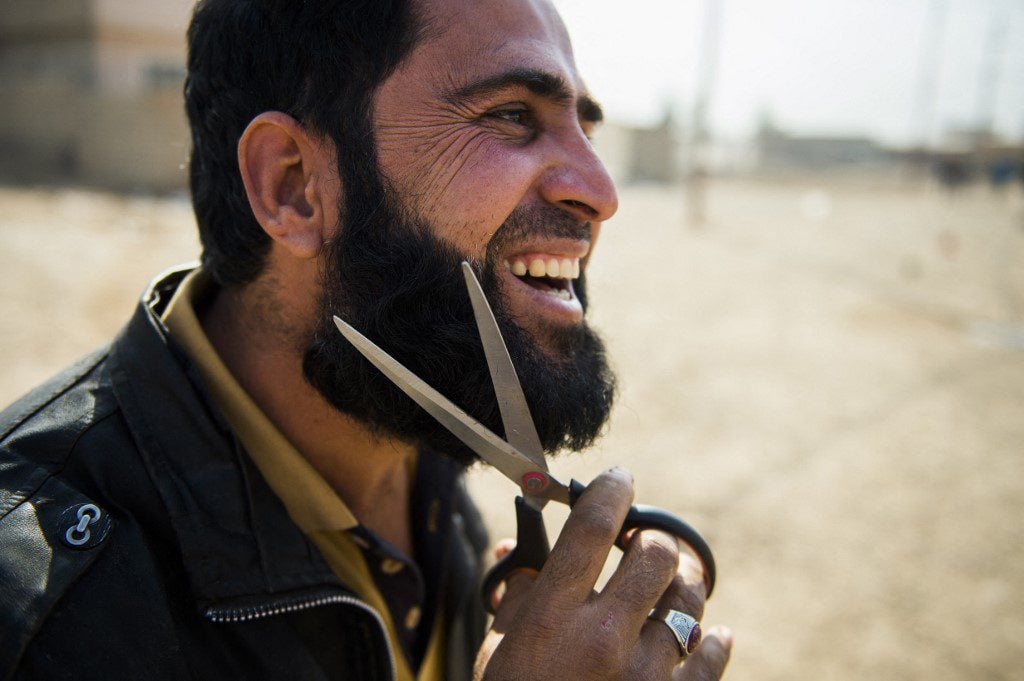
Hakim Marzouki
When beards come to your thoughts, you would wonder if they are blessings or curses. They grow on the faces of men and change their minds and souls, either positively or negatively. Beards might be groomed or bushy, black or blonde. However, they come as a declaration of thought or way of life that took time to prepare. Such a declaration is obvious, even if you don’t have time or desire to trim or shave long beards.
The hair on the face of males becomes by nature longer. This very nature allows nails to grow. Razors and scissors are also by nature there to restrain and stop their growth. You use them to cut your hair or shave your beard per taste, habit, and capabilities.
The beard grows slowly or abundantly according to the biological logic and the laws of heredity. Men intervene to dress their beards with the appropriate banners at every time and place according to their desires, goals, and needs. Some want to warm their cold face in frosty countries, and some found their ancestors, their countrymen, and their clan in the same look, so they respected beards and settled with them. Some cannot afford to buy razors to shave, such as the poor and homeless people. Some cannot find enough time to shave, such as sailors, fishers, and travelers. Some declared it a sign that distinguishes them from ordinary people, such as thinkers, masters, and clerics who consider it a form of reverence and wisdom.
Beards look like a visual language that we use in front of others, clearly to classify people, rightly or wrongly, based on social class or group. A beard has its moral authority. It has a material and spiritual standing that its followers and believers are blessed with until integrating it into the social fabric. That came through proverbs and oral culture that glorifies beards or mocks them. For example, people used to say: “He sits in our embrace and plucks our beards.” This saying goes for those who insult generous people.
We loved so many beards throughout this history, which I can only imagine as shaved and renewed every morning. The list includes the ancient philosophers through sculptures and imaginary depictions such as Plato, Socrates, Ibn Khaldun, Ibn Rushd, and Karl Marx. We respected the beards of religious figures, such as Jamal al-Din al-Afghani, al-Tahtawi, Abdul Qadir al-Jazaery. We show respect to many bishops and the sheiks of the theism mind in the Arab East and others preserving the purity of their beards out of respect and commitment to their tolerant messages of love and peace. Nevertheless, we found ourselves recently in front of people who had sprouted from the beards of hatred and malice. They see the future with a scowl and frowning from masses of dusty hair. They demand us to return to the caves of the past as if the sun had blinded their eyes. They favored the darkness and dampness of the graves over the sun.
Those people want to pounce on all that is joyful and cheerful. To reach their goals, they use legitimate demands, seeking to divert them towards their objective that is ever going backward and spoil dreamers’ joy in many Arab countries. They have no agenda except for ugly beards stained with the blood of the innocent.
What can we say to a beardless Salafist in an era where the trade of beard wigs and borrowed slogans is widespread? All that we have is what the Basran poet Ibn al-Rumi said about one of the bearded:
If a beard grows thick on you
Feedbags are known to donkeys,
Allah has hanged a feedbag on your face
But without fodder.
DISCLAIMER
The opinions expressed in this publication are those of our bloggers. They do not purport to reflect the opinions or views of Fanack or its Board of Editors.


